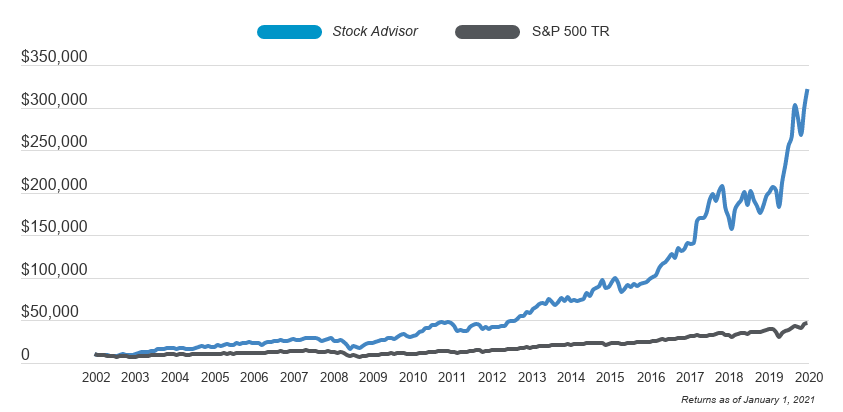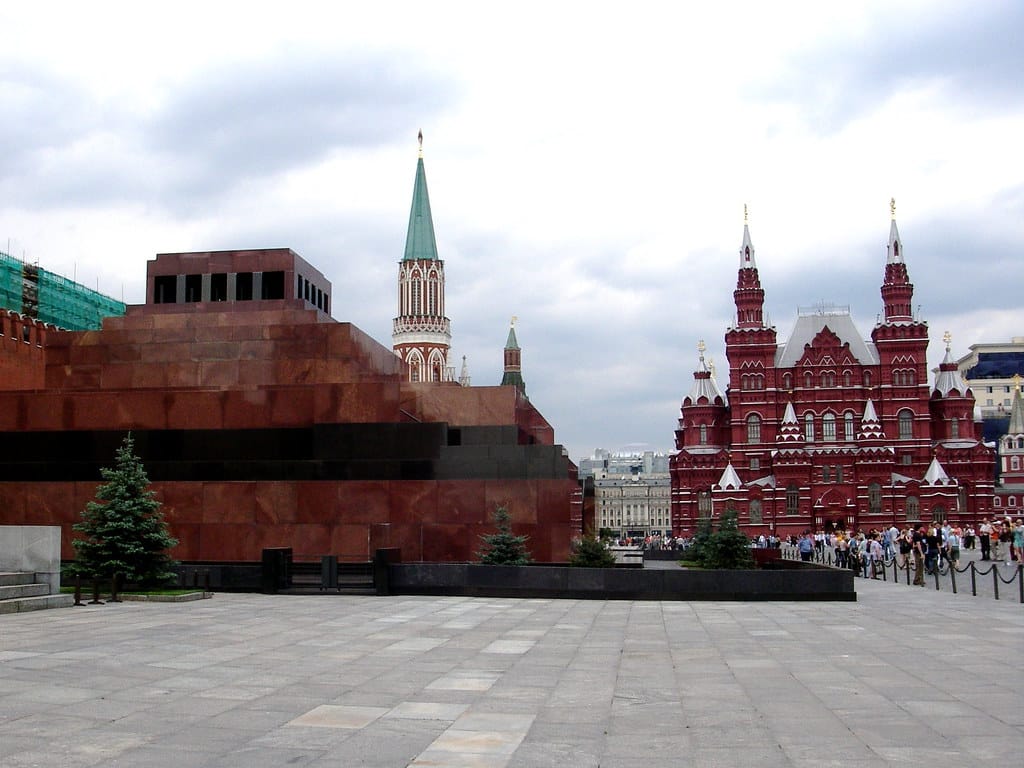
Управление образования и пропаганды инвесторов SEC выпускает этот обновленный бюллетень для инвесторов. Чтобы помочь военнослужащим принимать обоснованные решения по сбережениям и инвестициям и избегать распространенных мошеннических действий. Вот десять советов. Которые помогут вам понять основы и защитить ваши с трудом заработанные деньги. Для получения дополнительной информации. Проверьте Investor.gov/military.
1. Погасить Высокопроцентный Долг. Немногие инвестиции окупаются. Как и погашение высокопроцентного долга по кредитным картам или другим кредитам. Вы также должны принять меры по улучшению своего кредитного рейтинга. Что может помочь при подаче заявки на новую работу или ипотеку. Или при аренде квартиры.

Узнайте о том. Как поддерживать хороший кредитный рейтинг на веб-сайте Бюро финансовой защиты потребителей по адресу Consumerfinance.gov…
2. Составьте План и начните экономить и инвестировать как можно раньше. Лучший способ достичь финансовой безопасности-это сбережения и инвестиции в течение длительного периода времени. Вы можете использовать калькулятор целей экономии SEC на Investor.gov чтобы увидеть. Сколько вам нужно экономить каждый месяц. Чтобы достичь своих целей.

Из-за силы сложных процентов (процентов. Рассчитанных на первоначальный основной капитал. А также на уже заработанные проценты). Начало как можно раньше будет иметь огромные долгосрочные выгоды.
3. Воспользуйтесь преимуществами Плана бережливых сбережений (TSP). TSP-это версия 401(k) федерального правительства и один из ваших лучших вариантов пенсионных накоплений. Взносы могут быть автоматически вычтены из вашей зарплаты и предоставить налоговые преимущества либо сегодня (традиционный счет TSP). Либо в будущем (счет Roth TSP). В рамках Смешанной пенсионной системы ваши взносы в TSP сопоставляются до пяти процентов после двух лет службы.

Это же свободные деньги! Кроме того, TSP имеет очень низкие сборы. Веб-сайт TSP, TSP.gov, объясняет преимущества. Доступные военным. И вы можете подписаться на TSP с помощью MyPay.
Будьте осторожны. Рассматривая Цифровые активы.
Стремительный рост рынка первичного размещения монет (ICO) и цифровых активов ставит перед индивидуальными инвесторами множество вопросов. Но помните: инвестиции. Которые обещают высокую доходность, утверждают. Что имеют мало или вообще не рискуют. Или используют социальные сети или тактику продаж высокого давления. Часто являются мошенничеством.

Вы никогда не должны делать инвестиции. Если не понимаете рисков. Кроме того, будьте осторожны. Если инвестиция рекламирует одобрение знаменитости или утверждает. Что имеет одобрение правительства или спонсорство. Investor.gov имеет прожектор на странице ICO и цифровых активов – проверьте его. Прежде чем инвестировать.
4. Не Игнорируйте Гонорары. Все инвестиции имеют плату. И она варьируется от продукта к продукту и от фирмы к фирме. Даже небольшие различия в этих затратах могут существенно повлиять на прибыль и рост инвестиций с течением времени.
5. Диверсификация важна. Выбирая сочетание инвестиций. Вы можете ограничить свои потери и уменьшить взлеты и падения прибыли. Не жертвуя большой потенциальной прибылью.

Взаимные фонды. Биржевые фонды (ETF) и фонды жизненного цикла могут помочь вам диверсифицировать. Поскольку это инвестиции. Которые обычно объединяют деньги многих инвесторов. А затем инвестируют в различные акции, облигации. Другие ценные бумаги или активы.
6. Всегда проверяйте специалиста по инвестициям Перед инвестированием. Многие случаи инвестиционного мошенничества связаны с так называемыми “профессионалами”. Которые не зарегистрированы должным образом. Вы можете узнать. Зарегистрирован ли инвестиционный профессионал. Используя бесплатную базу данных на Investor.gov… Если он зарегистрирован. Вы также можете увидеть. Есть ли у него дисциплинарная история или жалобы клиентов. Вопросы? Позвоните по бесплатной линии помощи инвесторам SEC по телефону 800-732-0330.
7. Будьте начеку в поисках Мошенничества. Любое предложение или продажа ценных бумаг должны быть либо зарегистрированы в SEC. Либо освобождены от регистрации. В противном случае это незаконно. В то время как многие компании. Которые не регистрируются или не подают отчеты в SEC. Могут быть освобождены от регистрации. Вы принимаете на себя больший риск. Когда инвестируете в компанию. О которой мало или вообще нет информации в открытом доступе. Вы всегда должны проверить . Зарегистрировано ли предложение в SEC. Используя базуданных SEC EDGAR или связавшись с бесплатной линией помощи инвесторам SEC по телефону 800-732-0330.
Если вы видите что-то. Что может быть инвестиционным мошенничеством. Отправьте чаевые. Жалобу или направление по …
Время – это деньги. Лучше всего начать Экономить и Инвестировать как можно раньше. И вот Почему:
Предположим. Ваша цель-накопить 500 000 долларов на пенсионный возраст 65 лет-начиная с 25 лет и инвестируя в TSP или взаимный фонд в среднем 7 процентов в год. Вам нужно будет вносить только чуть больше 200 долларов в месяц. Однако если вы не начнете экономить до 50 лет. Вам придется откладывать более 1600 долларов в месяц. Почти в 8 раз больше. Чтобы достичь своей цели к 65 годам. Суть в том, чтобы начать инвестировать прямо сейчас – даже если в небольших количествах!
8. Будьте бдительны к мошенничеству. Нацеленному на военных. “Аффинити” мошенничество нацелено на членов групп. Таких как пожилые инвесторы. Религиозные или этнические общины и даже военные. SEC возбудила дела. В которых мошенники были нацелены на военнослужащих и их семьи. А в некоторых случаях мошенники даже служили в армии. Урок состоит в том. Что даже если вы знаете человека. Делающего инвестиционное предложение. Обязательно проверьте и инвестиции. И опыт специалиста по инвестициям—независимо от того. Насколько надежным кажется этот человек.
9. Будьте осторожны с Инвестициями. Которые Звучат слишком Хорошо. Чтобы быть Правдой. Заявления о том. Что инвестиции-это возможность “нельзя упустить”. Или обещания “гарантированной” отдачи-классические признаки мошенничества. Будьте внимательны к любым обещаниям высокой прибыли с небольшим риском или вообще без риска. Помните, что потенциал для более высокой доходности обычно связан с более высоким риском. Никогда не инвестируйте. Пока у вас нет возможности подумать об этом и провести исследование. Никакие законные инвестиции не требуют опрометчивого решения.
10. Свяжитесь с SEC. Если у Вас есть вопросы: Если у вас есть вопросы об инвестировании или о том. Как проверить лицензию или регистрацию физического лица или фирмы, позвоните по бесплатной линии помощи инвесторам SEC 800-732-0330 (наберите 1-202-551-6551, если звоните из-за пределов Соединенных Штатов) или по электронной почте. Help@SEC.gov.
SEC участвует в Сети финансовой готовности Министерства обороны и регулярно проводит образовательные брифинги для инвесторов на военных базах. Если вы заинтересованы. Свяжитесь с нами Outreach@SEC.gov…



После экономического кризиса 2008 года. Когда объем инвестиций сократился до 81 миллиарда долларов США. К 2012 году объем инвестиций почти удвоился и составил 154 миллиарда долларов США. Статистика за 2013 год показала стремительный рост иностранных инвестиций – до 170 миллиардов долларов США. После периода умеренного роста российская экономика вновь замедлилась в 2014 году после введения санкций против России и падения цен на нефть. Что существенно повлияло на инвестиционный климат. Хотя общая макроэкономическая ситуация оставалась благоприятной.

В первой половине 2015 года российская экономика продолжала развиваться. Но начиная со второй половины 2015 и 2016 годов наблюдался устойчивый рост числа иностранных инвестиций.
В 2018 году. Несмотря на санкционное давление и внешнеполитическую ситуацию. Объем иностранных инвестиций в российские хозяйствующие субъекты от сделок. Требующих согласия правительства на их осуществление. Составил 630 млрд рублей. Что на 40% больше. Чем в 2017 году. Наиболее популярными стратегическими отраслями промышленности для иностранных инвестиций в 2018-2019 годах были добыча полезных ископаемых. Транспорт и услуги в российских морских портах.

Согласно официальной статистике Центрального банка Российской Федерации (ЦБ РФ) за 2019 год. Объем иностранных инвестиций в российские нефинансовые компании оценивается более чем в 162 549 миллионов долларов США. Что на 12 955 миллионов долларов США больше. Чем в предыдущем году (149 594 миллиона долларов США). Таким образом. Несмотря на санкции и другие политические проблемы. Россия остается одним из наиболее привлекательных регионов для инвестиций и в будущем продолжит свою стратегию привлечения иностранных инвестиций на российские рынки.
В 2019 году основными инвесторами в российскую экономику оставались Кипр. Нидерланды. Великобритания и Ирландия.

Другими крупными инвесторами. Активно работающими на российском рынке. Являются Франция. Багамские острова. Бермудские острова и Британские Виргинские острова. Кроме того, поток инвестиций из Катара и азиатских стран – в частности, Сингапура. Японии и Гонконга – в настоящее время значительно увеличивается из года в год. Стоит отметить. Что Россия рассматривает азиатские страны в качестве перспективных деловых партнеров в области взаимных инвестиций.
Это было заменено в 1999 году действующим в настоящее время Федеральным законом

об иностранных инвестициях определяет статус иностранного инвестора. Правовые режимы для иностранных инвестиций. А также гарантии и льготы. Предоставляемые иностранным инвесторам. Действующим в России. Он содержит положения. Регулирующие создание и деятельность компаний с иностранными инвестициями и филиалов иностранных компаний.
С увеличением иностранных инвестиций в Россию стало ясно. Что процесс инвестирования в стратегически важные отрасли экономики требует более строгого контроля со стороны государственных органов. С этой целью Федеральный закон было введено в действие. И была создана специальная правительственная комиссия-Правительственная комиссия по мониторингу иностранных инвестиций (Правительственная комиссия). Которая возглавляется Премьер-министром России и осуществляет контроль за иностранными инвестициями.

Нормативные акты. Принятые российским правительством. Также составляют существенную часть законодательства страны об иностранных инвестициях и. Как правило. Содержат руководящие принципы по осуществлению правил контроля за иностранными инвестициями.
Правовой режим. Регулирующий иностранные инвестиции. Все еще развивается. Например, некоторые важные положения были приняты и вступили в силу 1 июля 2017 г. 8. Цель этих поправок заключалась в реализации политики деофшоризации в российской экономике и значительном ограничении круга субъектов. Имеющих право устанавливать контроль над стратегическими компаниями. Например, были запрещены сделки. Приводящие к установлению контроля над стратегическими компаниями – не только иностранными государствами и международными организациями и организациями. Находящимися под их контролем. Но также оффшорными компаниями и компаниями. Находящимися под их контролем.

Вскоре после этого был принят второй пакет поправок. Который вступил в силу 30 июля 2017 года.9 Этот второй пакет поправок не только расширил перечень сделок. Требующих разрешения на стратегические инвестиции. Но и внес некоторые существенные изменения в полномочия Правительственной комиссии.
Тенденция к деофшоризации продолжилась в 2018 году. И последний пакет поправок к Закону о стратегических инвестициях вступил в силу 12 июня 2018 года.10 Однако. По сравнению с предыдущими положениями. Они в целом направлены на либерализацию доступа иностранных инвестиций в стратегические секторы российской экономики и уточнение и ослабление процесса стратегического оформления.
Этот Закон заменил специальный режим для оффшорных компаний. Установленный в 2017 году. Предусмотрев вместо этого новую концепцию Согласно поправкам. Правовой статус компаний. Не раскрывающих информацию. Аналогичен правовому статусу государственных инвесторов (иностранных государств и международных организаций). Которые подлежат более строгому регулированию и более низким пороговым значениям в соответствии с Законом о стратегических инвестициях. Чем частные инвесторы. Таким образом. Эта концепция. По-видимому. Более благоприятна для инвесторов. Чем концепция оффшорных компаний 2017 года. Поскольку теперь потенциально можно избежать применения более строгого режима. Предоставив необходимую информацию о:
Для уточнения процедуры раскрытия информации в декабре 2018 года Правительство России издало постановление . В котором подробно описывается объем предоставляемой информации. А также порядок предоставления и регистрации информации. Кроме того, Министерство юстиции недавно утвердило административный регламент Федеральной антимонопольной службы (ФАС России) в отношении информации иностранных компаний о бенефициарах. Бенефициарных владельцах и контролирующих лицах. Настоящее Положение определяет порядок представления и анализа такой информации ФАС России. В настоящее время ФАС России запрашивает раскрытие информации в ходе проверок контроля за слияниями сделок для оценки необходимости оформления в соответствии с Законом об иностранных инвестициях и Законом о стратегических инвестициях.
В дополнение к вышесказанному вышеуказанные поправки прямо предусматривают право ФАС России давать официальные разъяснения относительно характера и применения Закона о стратегических инвестициях. Которые могут облегчить правоприменительный процесс. Развитие сотрудничества с зарубежными партнерами и интеграция России в мировую экономику всегда были одним из приоритетов развития России.
Законодательство об иностранных инвестициях продолжало развиваться в 2019 году. И в настоящее время ФАС России разрабатывает новый законопроект о внесении изменений в Закон о стратегических инвестициях. Новый законопроект предусматривает возможность для определенных частных иностранных инвесторов установить совокупный контроль над стратегической компанией и особый порядок выдачи стратегических лицензий.
8 июля 2020 года Государственная Дума одобрила подготовленный ФАС России проект федерального закона об устранении возможных злоупотреблений при временной передаче иностранными инвесторами права распоряжения голосующими акциями (долями участия) стратегических юридических лиц. Предлагаемые поправки вносят изменения в понятия Весь объем прав. Связанных с акциями (долями участия) стратегической компании. Принадлежащими иностранному инвестору. Будет учитываться при расчете доли иностранного инвестора в стратегической компании. Таким образом. Корпоративные права будут приниматься во внимание при анализе сделок и оценке необходимости отдельного оформления в соответствии с Законом о стратегических инвестициях; например. Права голоса. Которые временно передаются другому лицу на основании соглашения о доверительном управлении. Соглашения о залоге. Соглашения РЕПО. Обеспечительного платежа. Другого соглашения или транзакции.
Одно из основных изменений в позиции России на международной арене касается создания Евразийского экономического союза (ЕАЭС). Договор о создании ЕАЭС был подписан 29 мая 2014 года лидерами Беларуси. Казахстана и России и вступил в силу 1 января 2015 года. Договоры, направленные на вступление Армении и Кыргызстана в ЕАЭС. Были подписаны 10 октября 2014 года и 23 декабря 2014 года. Соответственно. Договор о присоединении Армении вступил в силу 2 января 2015 года. Договор о присоединении Кыргызстана вступил в силу 12 августа 2015 года. И Кыргызстан участвовал в ЕАЭС с момента своего создания в качестве присоединяющегося государства.
ЕАЭС представляет собой политический и экономический союз. Основанный на Таможенном союзе Беларуси. России и Казахстана (ныне Евразийский таможенный союз). Который,согласно официальной статистике. Имеет единый интегрированный рынок с населением более 184,27 миллиона человек и валовым внутренним продуктом более 1,96 триллиона долларов США. ЕАЭС считается крупным участником мирового энергетического сектора, сырья. Военной промышленности и сельскохозяйственного производства.
Высший Евразийский экономический совет является Высшим органом Союза. Состоящим из глав государств-членов. Союз действует через наднациональные и межправительственные институты. Высший Евразийский экономический совет является Высшим органом Союза. Состоящим из глав государств-членов. Другими наднациональными институтами являются Евразийская комиссия (исполнительный орган). Евразийский межправительственный совет (состоящий из премьер-министров государств-членов) и Суд ЕАЭС (судебный орган).
Еще одним важным шагом на пути к глобальному сотрудничеству и налаживанию диалога между национальными антимонопольными органами стал Центр законодательства и политики БРИКС в области конкуренции (Центр конкуренции БРИКС) по сотрудничеству между антимонопольными органами стран БРИКС . Созданный в июле 2018 года на базе Национального исследовательского университета В настоящее время Центр по конкуренции под эгидой БРИКС отвечает за контроль крупных сделок слияния и поглощения и выработки общих подходов к их оценке. А также регулярно публикует новости и важные материалы на объединенной веб-платформе для взаимодействия между странами БРИКС в антимонопольной сфере. Кроме того, БРИКС конкурса-Центр обеспечивает обмен информацией между органами по вопросам конкуренции при рассмотрении сделок. Центр уделяет особое внимание сделкам. Осуществляемым на рынках информационных технологий (ИТ). Антимонопольные органы стран БРИКС могут самостоятельно решать. Участвовать ли в проектах и проводить совместные оценки сделок.
В структуру Центра по вопросам конкуренции БРИКС входит Руководящий комитет. Состоящий из представителей (руководителей) органов по вопросам конкуренции БРИКС. Академический совет. В задачи которого входит разработка научного и академического содержания Центра. И Международный консультативный совет. Который обеспечивает международное признание Центра17
Создание Центра БРИКС по вопросам конкуренции не является первой попыткой укрепления сотрудничества в области конкурентной политики в странах БРИКС. В рамках БРИКС уже существует координационный комитет по политике в области конкуренции и ряд рабочих групп. Изучающих различные области. Такие как информационные технологии. Автомобилестроение. Фармацевтика. Рынки продовольствия и агропромышленного комплекса. Однако, в отличие от предыдущих проектов. Центр конкуренции БРИКС является постоянным механизмом сотрудничества.
Первые результаты работы Центра были представлены на Международной конкурсной конференции БРИКС в Москве в 2019 году. Среди основных результатов и значительных усилий антимонопольных органов стран БРИКС-научный доклад Доклад посвящен одному из важнейших вопросов современности-государственному управлению цифровой экономикой. В частности. С акцентом на новые формы конкурентного взаимодействия в эпоху цифрового капитализма.
1 апреля 2020 года Центр конкуренции БРИКС в рамках традиционной апрельской конференции ВШЭ провел онлайн-сессию. Посвященную антимонопольным мерам и подходам в эпоху пандемии. На сессии обсуждались такие вопросы. Как трансформация рынков в условиях пандемии. Включая переход от патентной монополии фармацевтических компаний к усилению рыночной власти цифровых гигантов; проблемы антимонопольного регулирования; и меры реагирования на новые угрозы.
Создание Центра по вопросам конкуренции БРИКС отражает готовность стран БРИКС к согласованию подходов и расширению аналитических возможностей. Поскольку страны БРИКС занимают около 46 процентов мирового рынка. Вряд ли какая-либо многонациональная сделка может избежать уведомления по крайней мере в одной из юрисдикций БРИКС. В этой связи подходы. Которые будут разработаны и использованы Центром. Могут существенно повлиять не только на национальные режимы конкуренции. Но и на глобальный процесс контроля за слияниями и условия для иностранных инвестиций.
Кроме того, в целях содействия поддержанию условий для привлечения инвестиций для развития товарных рынков и российской экономики (в соответствии с Указом Президента Российской Федерации от 21 декабря 2017 года № 618 Членами Экспертного совета по иностранным инвестициям являются эксперты и представители бизнес-сообщества. И как таковые они отвечают за предоставление
Ниже перечислены основные цели Экспертного совета по иностранным инвестициям:
FAS Russia holds regular meetings of the Foreign Investments Expert Council. Currently. The Expert Council is working on the Guidelines on Strategic Investments Review Procedure and Filings in Russia.
The legislation regulating foreign investments can be divided into two groups. The first includes general rules that apply to both Russian and foreign investments. These are contained in the Civil Code of the Russian Federation (the Civil Code). The Federal Law on Limited Liability Companies. The Federal Law on Joint-Stock Companies. The Federal Law on the State Registration of Legal Entities and Sole Proprietors. The Federal Law on the Securities Market and others. These federal laws regulate. Inter alia. General procedures for the establishment of legal entities. The purchasing of shares (participatory shares) constituting the authorised capital of legal entities. Questions of corporate governance and state registration of legal entities. The first group also includes the antitrust rules contained in the Federal Law on the Protection of Competition (the Competition Law).
The second group of rules solely regulates foreign investments. The principal laws in this group are the Foreign Investments Law and the Strategic Investments Law.
The Foreign Investments Law determines state guarantees of an investor’s right to invest. Gain income and profit. And the conditions for the commercial activities of foreign investors within Russian territory. This Law is not applicable to making investments of foreign capital into banks and other credit organisations. Insurance companies and non-commercial organisations. These areas are subject to regulation under the Federal Law on Banks and Banking Activities (the Banking Law). The Law of the Russian Federation on the Organisation of Insurance Business in the Russian Federation and the Federal Law on Non-Commercial Organisations.
The second principal law is the Strategic Investments Law. Which determines the procedures for foreign investments in strategic sectors of the Russian economy. A strategic clearance according to the Strategic Investments Law is required if the target company is incorporated in Russia and is active in one of the specified types of activities listed therein (such as activities in nuclear and radioactive materials. Devices and waste; aviation and space; the natural resources sector; exploration and production of minerals on subsoil plots of federal value. And use of subsoil plots of federal value (the oil and gas sector); coding and cryptographic equipment; mass media and telecommunications; use of agents of infectious diseases (except by companies engaged in food production); or with a licence for conducting such an activity (a strategic company). Herewith, holding a licence is not a mandatory condition for a company to be deemed strategic. It is now enough that there are ‘other permitting documents’ enabling the company to engage in that type of activity.
As a general rule. The list of activities stipulated by the Strategic Investments Law is exhaustive. Therefore a foreign investor can check whether a potential target can be considered a strategic company. However. The recent practice of FAS Russia shows a trend for the application of the concept of ‘related business activities’ to the statutory strategic activities. Which are directly listed in the Strategic Investments Law. Therefore, FAS Russia interprets ‘strategic activities’ rather broadly. Especially in the oil and gas sector.
One particularly illustrative example of the application of this concept is the Nabors/Tesco case. In which FAS Russia declared that ‘running casing services for drilling’ is a type of strategic activity. Since such activities. As performed by the Russian company acquired within the planned transaction. Constitute an integral part of a technological process for the geological study of subsurface resources. Or exploration and mining of mineral resources, or both. In subsoil areas of federal significance. Consequently. FAS Russia concluded that the company had strategic importance. Therefore the parties to the transaction were obliged to clear the transaction according to the procedure established by the Strategic Investments Law. However, they had failed to obtain such a clearance decision in advance. In its turn. The court confirmed FAS Russia’s position. As a result. The acquirer was fined. And the court then deprived it of its voting rights in this Russian strategic company. In a continuation of this case. The Constitutional Court ruled that organisations providing oilfield services in subsoil areas of federal value are business entities of strategic importance in ensuring the country’s defence and state security. Therefore again supporting FAS Russia’s position.
In addition to broad interpretation of the strategic types of activities. There is a special right of the chair of the Government Commission. At his or her own discretion. To present to the Government Commission for consideration any transaction conducted by foreign investors with respect to practically any Russian business entity. Not just a strategic one. First, transactions that might be of interest to the Russian Prime Minister and might be considered by the Government Commission. Are transactions in respect of Russian companies not involved in implementing strategic activities. But in implementing activities that might be directly connected with the 47 types of activities of strategic importance. Second, the authorities’ spheres of potential interest are large trans-border transactions. Involving the transfer of assets or subsidiaries located in Russia. On which the economic defence of Russia might depend (for example, food. The pharmaceutical industry and the defence sector). Finally, the third category of transactions. Which might potentially result in the heightened interest of the Russian Prime Minister and might be considered by the Government Commission. Are transactions with public investors usually operating in different cultural and legal environments. Pursuant to the Decree of the Government of the Russian Federation on the Government Commission Executing Control over Foreign Investment in the Russian Federation. FAS Russia is the state body responsible for monitoring the foreign investments sector. The Government Commission considers submitted notifications of transactions and decides whether there is a threat to national security and defence.
In the banking sector. The acquisition of 10 per cent or more of the shares in a Russian credit organisation is subject to prior approval by the Central Bank. And acquisition of more than 1 per cent but less than 10 per cent requires a post-transaction notification.
In the insurance sector. A Russian insurance organisation must receive prior approval to increase its authorised capital by means of foreign funds and to assign its shares to a foreign investor. Its shareholders must receive prior approval for the assignment of their shares to foreign investors.
In the mass media sector. Foreign investors cannot own more than 20 per cent of shares (participating interests) in the Russian mass media. Moreover, foreign investors and foreign legal entities. Russian citizens with dual citizenship and stateless persons cannot be founders of mass media entities.
In the natural monopolies sector. Acquisition of more than 10 per cent of fixed assets of a legal entity operating in the sphere of natural monopolies requires clearance by FAS Russia.
Generally, there are three legal forms of foreign investment in Russia: (1) legal entities (limited liability companies (LLCs). Joint-stock companies or partnerships) including joint ventures (JVs); (2) branches and representative offices; and (3) legal investment contracts.
In recent years. It has become quite common for foreign investors to conduct business in Russia by forming a JV with a Russian partner who is more familiar with the local rules and customary business practices. And has significant business experience in the Russian market. Until recently. The prevailing tendency has been to use offshore structures for the creation of JVs. And to govern shareholders’ agreements by a foreign law (mostly English) because foreign law provides for a wide range of protection mechanisms and remedies. Nevertheless. Russian law has lately become more widely used for JV creation. Owing to certain positive legislative and law enforcement changes. Including the fact that it now allows the conclusion of shareholders’ agreements governed by Russian law. And it is now possible to limit the right of participants in Russian LLCs to withdraw from the company. Which makes the LLC a more stable and convenient form for establishing a JV.
The Competition Law includes several areas of particular interest to foreign investors. Thus, provided the filing thresholds described in Section IV are met. Transactions and other actions (including the establishment of companies) that involve acquisition of the following will fall under the merger control requirement:
Thus, since 5 January 2016, all JV agreements concluded between competitors (including actual or potential competitors) that have combined assets of more than 7 billion roubles or combined revenues of more than 10 billion roubles have been subject to pre-completion clearance with FAS Russia if the agreement is concluded in relation to the territory of the Russian Federation. In this regard. Three possible situations regarding the pre-transaction clearance of JV agreements might be considered.
If the assets or turnover thresholds are met. The transaction will require a merger filing if the authorised capital of the newly formed JV will be composed of or contributed to by:
If the assets or turnover thresholds are met. The transaction will require a merger filing if the existing legal entity:
As a general rule. All JV agreements that may influence the state of competition in Russia are subject to obligatory merger clearance if the assets or turnover thresholds are met. That said, conclusion of a JV agreement with the formation of a new entity. With participation in an existing one or without formation of a new entity might trigger the filing obligation if the JV is supposed to have activities in Russia.
If JV agreements concluded between competitors do not formally require pre-completion clearance by FAS Russia. Parties to the JV have a right to submit a voluntary application to FAS Russia to verify that the JV is compliant with Russian anti-monopoly legislation. And to mitigate the risk of its qualification as an anticompetitive agreement.
In accordance with the Clarifications ‘On procedure and methods of analysis of JV agreements’ issued by FAS Russia on 8 August 2013, a JV agreement cannot be recognised as admissible if the purpose of the agreement is a restriction of competition. The Clarifications provide a rebuttable presumption that JV agreements envisaging a refusal of competition on the same or related markets are potentially anticompetitive and may lead to a restriction of competition.
As previously mentioned. The Competition Law provides for merger control in the form of a pre-transaction clearance. The thresholds for the pre-transaction filing are as follows:
Post-transaction notification may still apply in a very limited number of cases; for example. To certain intra-group transactions. Provided that the company discloses its group on the official competition authority website.
As mentioned above. The acquisition of strategically important businesses in Russia requires separate clearance by the state authorities. Thus, in accordance with the Strategic Investments Law. The following types of transactions are subject to receiving the consent of the Government Commission:
Subsequent control is maintained through notification on possession of 5 per cent or more of the shares (participatory shares) constituting the authorised capital of the strategic company.
Regarding the post-transaction notification. This should be submitted to the authority within 45 calendar days of the date of the transaction closing. Post-transaction notification should be considered within 30 days of the date of submission of the relevant documents.
Once the results of the notification have been submitted to FAS Russia. A special notice is granted. Acknowledging that notification of the transaction has been taken into account.
Additionally. Foreign investors or groups of persons are obliged to submit post-completion notification to the authority and inform the authority of implementation of the transaction or other actions for which preliminary consent was granted.
Under the Foreign Investments Law. Transactions made by foreign states. International organisations or by organisations controlled by them are subject to pre-transaction clearance if the transaction results in:
In practice, however. The notifications made under the Foreign Investments Law are not reviewed by the Government Commission. Unless the target is a strategic company (and therefore. Subject to separate filing under the Strategic Investments Law).
Generally, prior to implementation of the transaction leading to establishment of direct or indirect control over a strategic company. A foreign investor should obtain the approval of the Government Commission. Preliminary proceedings are held by FAS Russia and other state bodies.
Furthermore. The Strategic Investments Law provides the option to recognise a transaction as strategic if the chair of the Government Commission (i.e.. The Russian Prime Minister). At his or her own discretion. Believes that this transaction might influence national security and the defence of Russia.
According to this option. Within five business days of the date the Russian competition authority becomes aware of a transaction by a foreign investor with respect to a Russian entity. It shall send requests to provide information about the forthcoming transaction to the Russian Prime Minister. The federal authorities. Or other organisations responsible for the implementation of national policy and statutory regulation in the sphere in which the Russian entity is involved. Within the next 15 business days. Addressees shall submit their suggestions to FAS Russia as to whether the transaction shall be considered under the specific procedure. Requires strategic clearance and is of strategic importance for Russia. If the Russian Prime Minister makes a decision about the necessity of securing preliminary clearance of the transaction. FAS Russia shall inform the foreign investor of that decision within three business days.
Moreover, the Law sets out the Government Commission’s powers to determine any obligations to be imposed on foreign investors as conditions for prior approval of a transaction that it considers necessary to safeguard national defence and state security. Although the list of these obligations in the previous version of the Strategic Investments Law was exhaustive. Foreign investors themselves could nonetheless propose to the Government Commission obligations that were not on the list and state that they were prepared to undertake to complete a transaction and could include them in the agreement concluded with FAS Russia. In accordance with the latest amendments, however, introduced in 2018, the Government Commission may now impose any obligations. Even those not listed in the Strategic Investments Law. Fulfilment of which is related to maintaining national security and defence. In other words. The list of obligations is not exhaustive. All this is aimed at protecting domestic business from the influence of sanctions. Preventing economic isolation and continuing the approach taken for import substitution and in relation to the use of foreign technologies. And reflected by localisation of production.
An application is submitted to FAS Russia. Which works as a ‘secretary’. Checking all the documents. Coordinating agencies and preparing a draft of the decision for the Government Commission. Altogether, the compliance procedure takes between three and six months from the moment of submitting the application.
As to the procedure of consideration of the application. Since 2 February 2016 the Government Commission has had the right to adopt decisions on applications filed by foreign investors in the absence of Commission members. Without convening a meeting (an absentee vote). Decisions as to whether an absentee vote might be held or not are made by the chair of the Commission. If the Commission members cannot reach a unanimous position. A vote should be held again in the presence of all Commission members.
In the event of failure to observe the legal rules with respect to clearance of the transactions and notification of the authorities of the transactions implemented. Civil and administrative liabilities will apply.
Violation of the filing obligations (failure to notify within the required time limits. Such as by submitting misleading information to FAS Russia. Failure to provide required information. Or failure to comply with the FAS Russia ruling). As well as closing the transaction without clearance by FAS Russia. May result in the imposition of an administrative fine of up to 500,000 roubles on the acquirer. Administrative liability in the form of a fine of up to 20,000 roubles may be also imposed on the chief executive officer of the acquirer.
If a transaction implemented without clearance by FAS Russia could, or does. Result in the restriction of competition in Russia (including. Without limitation. The strengthening of a dominant position). FAS Russia may file a lawsuit. A competent state court may declare the transaction invalid and. As a result. Reverse the transaction. Transactions executed in breach of the Strategic Investments Law are null and void. If it is not possible to apply the consequences of invalidity on a void transaction. The state court may. Upon a lawsuit brought by FAS Russia. Adopt a decision to deprive the foreign investor of its right to vote at a meeting of the shareholders’ (participants’) of the strategic company. Or to invalidate those decisions of the management bodies of the strategic company adopted after the establishment of control in breach of the Strategic Investments Law. A foreign investor might also face an administrative fine of up to 1 million roubles for failure to obtain preliminary approval or notify the transaction in accordance with the Strategic Investments Law.
The following case is an example of the courts voiding transactions that have been concluded without obtaining clearance under the Strategic Investments Law. In the Heihe Trade and Economic Limited Liability Company Jin/Amurmed LLC case. FAS Russia determined that the Heihe Jinin Trade and Economic Limited Liability Company (People’s Republic of China). Which is a foreign investor. Established control over Amurmed LLC without prior approval of the Government Commission. In violation of the requirements of the Strategic Investments Law. Amurmed LLC carries out geological exploration of subsoil plots of federal value and is of strategic importance in ensuring the country’s defence and state security. The Sixth Arbitration Court of Appeal upheld FAS Russia’s appeal. Quashed the decision of the court of first instance and declared the contract for the sale of 100 per cent of the share capital of Amurmed LLC invalid. In this way. FAS Russia has managed to eliminate unscrupulous foreign investors’ practice of ‘evading’ their responsibilities in relation to transactions executed in violation of the provisions of the Strategic Investments Law.
The Otkritie Industrial Investments LLC/AGD-Diamonds JSC case is another recent example of a lawsuit being raised to invalidate a transaction. In this case. FAS Russia filed a lawsuit with the court seeking to invalidate a transaction concluded three years previously by Otkritie Industrial Investments LLC. A subsidiary of the Otkritie group. On its acquisition of 100 per cent of the shares of AGD Diamonds JSC and to impose injunctive remedies. This landmark case is the first case in Russian court practice in which FAS Russia has decided that a previously approved transaction violated the clearance obligation under the Strategic Investments Law. Specifically. FAS Russia revealed that Otkritie Industrial Investments LLC had not provided FAS Russia and the Government Commission with information on the fact of the foreign citizenship of certain beneficiaries. The court accepted the lawsuit for court proceedings and imposed an injunction on Otkritie Industrial Investments LLC. The only shareholder of AGD Diamonds LLC. Prohibiting the implementation of any transaction in respect of AGD Diamonds LLC; changes to its charter and other internal acts; the increase (or decrease) of its charter capital; its reorganisation or liquidation; and any refusal or change of rules regarding its current licences and other permits. The case is still ongoing.
The amendments, as of 2017, to the Strategic Investments Law also made special provision in relation to the Republic of Crimea and the federal city of Sevastopol: foreign investors are required to disclose information about any holding of five per cent or more of shares (interests) constituting authorised capital of strategic companies incorporated in the Republic of Crimea or the federal city of Sevastopol within 90 days of the amendments coming into force.
In addition to the existing fines for failure to comply with the requirement for foreign investors to file post-transaction notification of: (1) their acquisition of 5 per cent or more of votes in the authorised capital of strategic companies; (2) the completion of pre-approved transactions; and (3) holding 5 per cent or more of shares (interests) in strategic companies incorporated in Crimea or Sevastopol. The Strategic Investments Law will provide for the foreign investor to be deprived. Through a court further to a claim by FAS Russia. Of the right to vote at a general meeting of the company until the foreign investor properly fulfils the obligation to file a notification for consideration by the authority.
The statutory period for consideration of the pre-transaction merger control application by FAS Russia is 30 calendar days from the date of receipt of the application and the full set of documents attached thereto. The above term may be extended by an FAS Russia decision for up to two months for the submission of additionally requested documents. As such, the period for obtaining approval under the Strategic Investments Law is between two-and-a-half and three months from the moment of submission of the application. And can be extended for up to three more months (which often occurs in practice). It should be noted, though. That FAS Russia introduced a bill to amend the Fifth Antimonopoly Package. Which provides for several initiatives regarding the possibility of extending the review period under the merger control procedure in certain cases (which is currently proposed to be quite significant in terms of time). These initiatives are described in more detail in Section VII.
The Competition Law provides for an extension of the period to consider whether an application is to be approved in advance. In accordance with the Strategic Investments Law. Prior to adoption of the decision with respect to the transaction in accordance with the Competition Law. Moreover, FAS Russia will refuse to clear a transaction in accordance with the Competition Law if the transaction is not approved in accordance with the Strategic Investments Law.
The parties may also apply to FAS Russia to provide notice of a forthcoming transaction before submission of an application or subsequent notification (the pre-notification process). The parties may provide FAS Russia with the documents and information about the transaction and participate in developing remedies with a view to ensuring competition. The same provisions concerning remedies apply to strategic companies.
Under the Strategic Investments Law. The Government Commission is entitled to initiate an expert assessment of the data. Which are accessible by the applicant. As regards their pertinence to data constituting a state secret. In addition. For the purposes of establishing the fact of institution of control by a foreign investor or a group of persons over a company of strategic importance. As well as the fact that there is an agreement made by a foreign investor and third persons (concerted actions) aimed at instituting control over a company of strategic importance. Operational units of the federal security service agencies are entitled to undertake operational search measures. The results of these operational search activities may be used for substantiation of claims made in court.
According to the Foreign Investments Law. The legal regime for foreign investments is generally equal to that for the investment activities of national (local) investors to the extent particularly indicated in the federal laws. Restrictive exceptions to the foreign investments regime may be introduced only for protection of the constitutional fundamentals of morality. Health and other rights of persons. Or to ensure state security and defence.
Foreign investors are fully protected against nationalisation or expropriation. Unless an action of this kind is mandated by federal laws. In these cases. Foreign investors are entitled to receive compensation for any investment and other losses. However, any affiliated and dependent companies of a commercial organisation with foreign investments shall not enjoy the legal protection. Guarantees and privileges established by the Foreign Investments Law.
The Foreign Investments Law provides several guarantees for foreign investors; inter alia. It guarantees the right of foreign investors to:
When considering making an investment in Russia. A foreign investor should also consider the benefits and preferences of setting up a new business in a special economic zone (SEZ). Which is a territory within the Russian Federation defined by the government where a special business activity regime operates and where a customs-free area may apply. According to recent statistics provided by the Ministry of Economic Development of the Russian Federation. The volume of investments of SEZ residents exceeded 445 billion roubles. As at 31 December 2019, 146 residents with participation by foreign investors were registered in SEZs among shareholders. And these residents executed agreements on the implementation of businesses activities. Currently, 33 SEZs exist, of which 15 are for industrial production, seven focus on technological innovation, 10 are tourism and recreational SEZs and one is a port SEZ.
The reasons for creating an SEZ range from development of manufacturing and high-technology industries to facilitation of tourism. Creation of sanatorium resort areas. And improvement of port and transport infrastructure. For instance. The SEZ in Lipetsk is designated for the attraction of foreign investment in the production of finished metal products. Machinery and equipment, vehicles. Machines and components. And construction materials. While the SEZ in Alabuga stimulates foreign investment in motor vehicles and components. Petrochemicals and construction materials production.
The majority of SEZs were created under government decrees. However, they may also be formed in accordance with federal laws. The free economic zone in the territory of Crimea and Sevastopol, which has been created with a term extending until 31 December 2039, is an example of such a zone.
Regional development zones (RDZs) may also be created in the territory of the Russian Federation. An RDZ is the part of the territory of the region of the Russian Federation where special measures of state support are granted to its residents with the aim of socio-economic development of the region by way of attracting investment. The measures of state support are related to tax benefits and financing of different projects. RDZs may be formed only on the territory of definite regions within the Russian Federation. The list of which is established by government decree. At present, the list includes 20 constituent entities of the Russian Federation: the Republics of Altai. Buryatia, Dagestan. Ingushetia. Kalmykia, Karelia. North Ossetia–Alania, Tuva. Kabardino-Balkaria. Karachay-Cherkessia and Chechnya. The Zabaikalskiy. Kamchatskiy and Primorskiy Territories. The Arkhangelsk, Ivanovo. Kurgan, Magadan. Pskov Regions and the Jewish Autonomous Region.
Currently, another main Russian Federation aim in investment policy is increasing the investment appeal of the Russian Far East region. On 29 December 2014, the Federal Law on the Territories of Priority Socio-Economic Development and Other Measures of State Support for Regions of the Far East was adopted. Under this law. The ‘territories of priority socio-economic development’ (the Accelerated Zones) are the parts of the territories of the regions of the Russian Federation in which the special regime of carrying out business activity is established with the aim of attracting investment. This law became effective on 30 March 2015 and for three years from that date. Accelerated Zones could be created only in the territory of the Russian Far East. And in the territories of the ‘monotowns’ (those where the economy is dominated by a single industry or company). The list of which is established by order of the government. Now that this term has expired. Accelerated Zones may be created in the territories of all regions of the Russian Federation.
There are a number of practical measures for the creation of bodies whose purpose is the development of the investment climate; for example:
Within the defined form and structure of foreign investments legislation in Russia. Which has been in existence for more than two decades. The legislators’ priority now is specification of the rules and compliance with global best practices. The main aims are to make foreign investment easier. To limit administrative barriers and to guarantee a comprehensive and non-discriminatory approach to foreign investor initiatives.
According to FAS Russia and the Government Commission. The number of applications for strategic clearance is constantly increasing. In 2014, 34 applications were considered by the Government Commission – the number grew to 44 in 2015 and during 2016 FAS Russia and the Government Commission considered 54 applications.
From 2008 to 31 December 2019, FAS Russia received a total of 516 strategic investment notifications. Only 23 out of 282 notifications considered by the Government Commission were rejected. On grounds of national security and defence. For the remaining notifications submitted. Clearance under the Strategic Investments Law was found to be unnecessary. A decision on preliminary approval of a deal was made in 259 cases (with the assignment of commitments in 81 cases).
The majority of applications were received from investors in Japan. The United States. Norway and Cyprus. In general, natural monopolies and natural resources. Companies providing services in Russian seaports and those carrying out activities in the nuclear industry have been the most popular strategic businesses for foreign investors seeking to become established in Russia in recent years.
One of the most important transactions cleared by the Government Commission was the Fortum/Uniper deal. In this deal. Finnish state-owned energy company Fortum planned to enter into agreements with Elliott and Knight Vinke to increase its shareholding in Uniper (a Russian subsidiary of the Unipro Group) to more than 70.5 per cent. In turn, Uniper had a water utility. Which was not a principal part of the company’s business activity but was covered under the rules on natural monopolies. As a result. The Government Commission approved a deal with commitments subject to a suspensive condition. Because of the restrictions under the existing Strategic Investments Law. Thus, Fortum will be able to exercise control over Uniper only after the relevant amendments come into force.
Another significant case was the Schlumberger/EDC deal. FAS Russia, acting as an intermediary between the parties to the transaction and the Government Commission. Closely cooperated with other industry regulators and explicitly linked its conditions for approval to the possibility of further economic sanctions on Russia. Schlumberger was required to agree that if new sanctions were imposed that made EDC’s business activities impossible. Schlumberger would have to transfer control of the company to Russian management but leave its own proprietary technologies integrated into the company. In the end, Schlumberger withdrew its application and scrapped the deal.
FAS Russia has recently addressed the need to adapt existing market analysis and merger control procedures to the new market reality. This was triggered by a number of global transactions in innovative digital markets. FAS Russia concluded that the effects of big data and networks should also be regarded as a factor affecting market power. As a result. FAS Russia has introduced special remedies to prevent restriction of competition in that area.
For example. In the Bayer/Monsanto case. FAS Russia applied a new method for analysing the effects of the transaction on the market. Having stressed several times that the transaction had nothing to do with the markets where the parties had overlaps in Russia (as in a ‘traditional’ approach) and even on a global scale. But that it was about knowledge. Innovations, platforms. Algorithms and technologies possessed by both companies. Enabling them to influence the market conditions. Create entry barriers to other participants and dictate terms for further development of the agro-industrial sector for future decades. To mitigate the identified concerns. FAS Russia decided to use a set of entirely new legal mechanisms. Such as (1) transferring technologies instead of traditional behavioural or structural remedies. And (2) instituting independent trustees to monitor the transfer of technologies and obligations imposed on the parties. This significant case formed the basis of the ‘fifth anti-monopoly package’.
Another example was the Yandex.Taxi/Vezet case. In which FAS Russia made a decision to reject Yandex.Taxi’s application for the acquisition of assets of the Vezet Group companies because of the analysis of data from digital taxi aggregators and taxi fleets with their own control rooms conducted by FAS Russia in 2019–2020 with the involvement of its regional departments throughout Russia. According to FAS Russia. The combined market share of the Yandex.Taxi and Vezet Group companies in the taxi aggregator market in Russia would be 70 per cent. While in 19 regions of Russia this market share would be over 80 per cent. And in 32 other regions over 50 per cent.
To address the practical challenges of enforcement practice. FAS Russia has prepared the fifth anti-monopoly package and discussed probable amendments. This package of amendments provides new criteria to trigger the merger control clearance of a transaction. Legal grounds for prolongation and suspension of the review periods. As well as other important changes in the Russian merger control regime.
In particular. The following initiatives for merger control regulation have been put forward:
At present, the fifth anti-monopoly package has yet to be adopted; however. Some of the amendments suggested have already been tested in practice.
It is also important to emphasise that FAS Russia intends to improve the quality of its decisions by conducting market analysis and more in-depth reviews of almost all transactions. This is only an internal initiative by FAS Russia. But it has already been observed in practice and could potentially affect the length of time taken for consideration of some transactions.